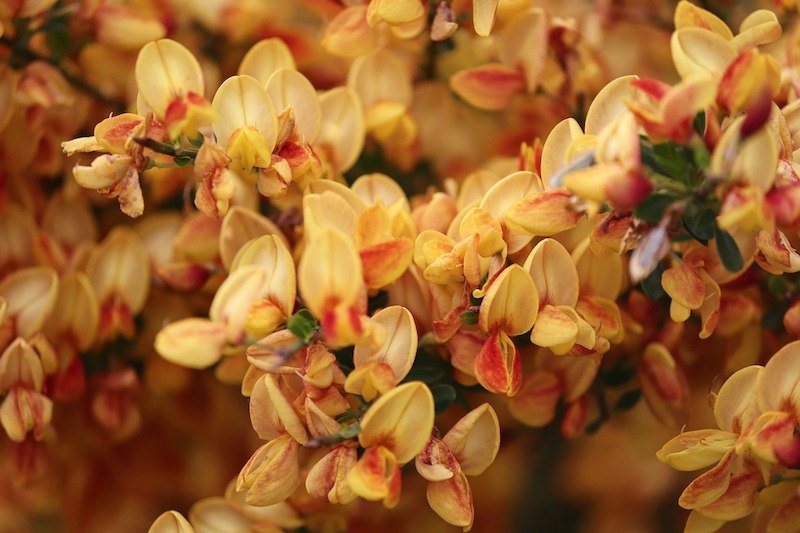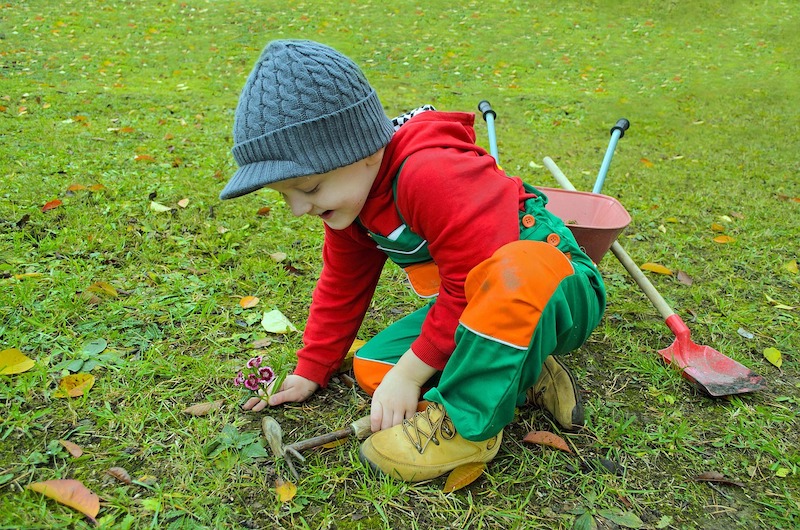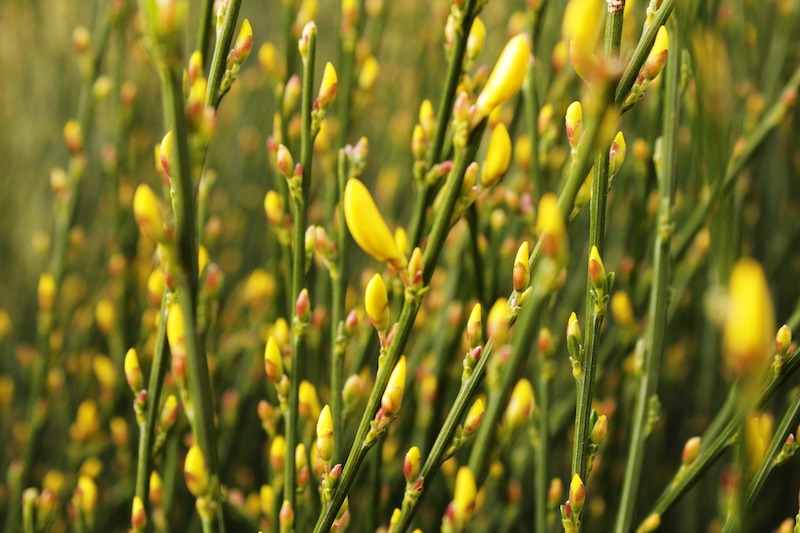This beautiful shrub was imported to North America from Europe as an ornamental for its eye-catching flowers and ability to withstand harsh environments; however, it can spread through seeds easily and can become invasive in areas where animals graze. Scotch Broom can be poisonous to pets, children, and other animals depending on the amount ingested. Although Scotch Broom has been used in homeopathy to treat a variety of ailments, Scotch Broom contains alkaloids–cystine and spartein–which can have adverse effects on the nervous and circulatory systems when ingested. Never allow young children or pets unsupervised near garden plants so they don’t inadvertently nibble or chew on them.

Is Scotch Broom Poisonous to Children?
Scotch Broom is likely unsafe to ingest for children and toddlers. Never leave curious children unattended in the garden because you never know what they may find interesting to put in their mouths. Poisoning can occur if any part of Scotch Broom is ingested; symptoms may include headache, heartbeat changes, limb weakness, sweating, and widening of the pupils. Seek medical treatment immediately if you suspect your child ingested any part of this plant.

Is Scotch Broom Poisonous to Dogs?
Scotch Broom is poisonous to dogs, although symptoms can vary depending on how much was ingested, the size and weight of your dog, its age, and any pre-existing health conditions. The following symptoms may occur: abdominal discomfort, diarrhea, vomiting, weakness, loss of appetite, lethargy, increased heart rate, and lack of coordination. If you witness your dog chewing or eating any part of Scotch Broom, or if your dog shows any of these signs, seek veterinarian care immediately.
Is Scotch Broom Poisonous to Cats?
Cats are indeed curious creatures and love nibbling and sampling a variety of indoor and outdoor plants. Scotch Broom is toxic to many animals, including cats. Symptoms to watch out for include vomiting, lethargy and weakness, increased heart rate, and loss of coordination. If you suspect your cat has eaten any part of Scotch Broom, seek veterinary care immediately. It's always best to keep an eye on your pets at all times when in the garden due to their insatiable curiosity and nibbling tendencies.
Is Scotch Broom Poisonous to Other Animals?
Scotch Broom is deer resistant, but horses, cattle, and sheep have been affected by grazing on Scotch Broom where it has become an invasive shrub in some Eastern and Western coastal areas. Scotch Broom can adapt to many soil types and drought conditions, and it sends thousands of seeds from its pods in the fall, so cut them off the shrub to limit its spread.

Symptoms Of Scotch Broom Poisoning
Always check with your doctor or veterinarian immediately for guidance if you suspect Scotch Broom poisoning.
Here are some common symptoms to look out for:
- Diarrhea
- Nausea
- Vomiting
- Weakness and lethargy
- Lack of coordination
- Increased heart rate
Preventing Scotch Broom Poisoning
Because pets and children can be curious and interested in chewing on new plants, consider using a physical barrier to prevent them from nibbling on Scotch Broom. Always keep an eye on your pets and children when you let them outdoors because they are bound to be curious about all the scents, textures, and tastes in your garden. Providing a physical barrier such as an open-weave bird netting stapled to fencing stakes will not obstruct the view but will help keep your pets and toddlers at bay. Using homemade or store-bought pepper spray on all parts of the plant may help deter browsing animals. Keep a complete list of all the plants in your landscape, and get advice from your veterinarian on ways to keep pets from chewing on your plants.
Pet Poison Helpline
If something were to happen to your furry friend, and you suspect that they are suffering from Scotch Broom poisoning, there is a poison control hotline to call for 24/7 vet advice. It is called the Pet Poison Hotline, and their phone number is (855) 764-7661.
Sources: "Scotch Broom." Colorado State University Guide to Poisonous Plants. poisonousplants.cvmbs.colostate.edu
 |
Author Chris Link - Published 01-26-2023 |


